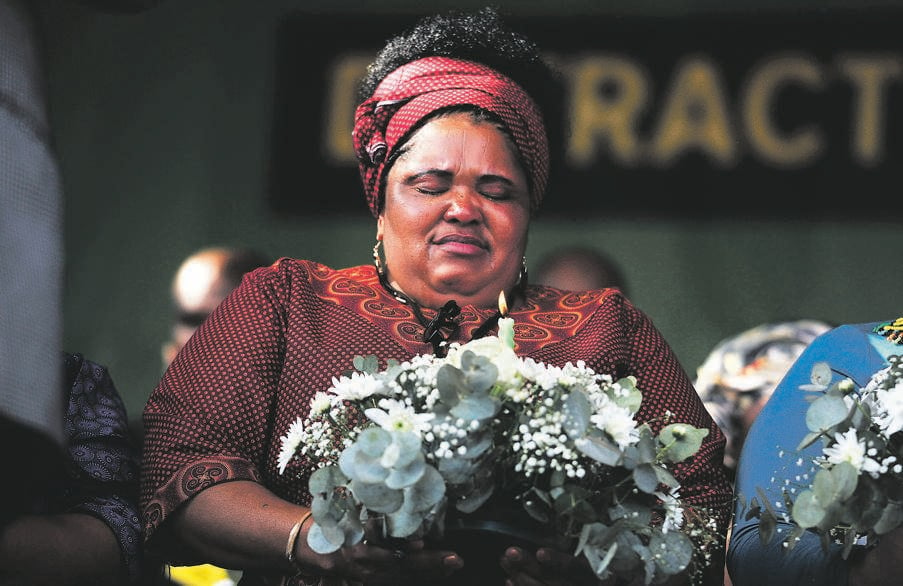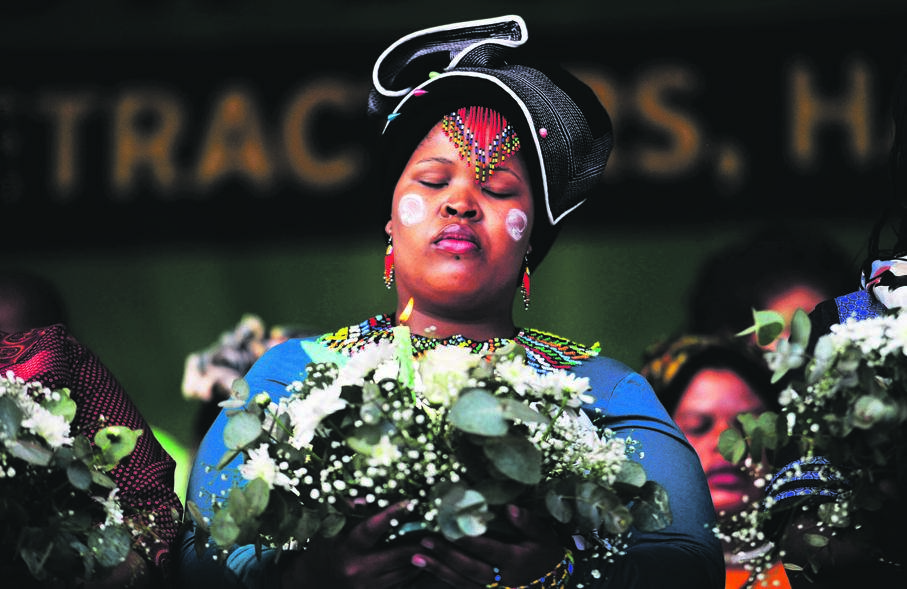
Relatives of the 10 people killed in the lead-up to the Marikana massacre say they’ve been sidelined ‘in every way’
Going to work every day at Sibanye-Stillwater mine – formerly owned by Lonmin – in Marikana, in North West, and thinking that those who killed his father may be there, is a painful experience for Bongani Twala.
Seven years after the mining strike that resulted in the deaths of 44 people – including mine workers, police officers and security guards – he is still struggling to find closure.
“This is exacerbated by the pain of hearing everyone speak every year only about the 34 mine workers who were killed on August 16 2012. I hear nothing about those who were brutally killed in the days leading up to August 16 – allegedly by the striking mine workers,” says Twala.
The Marikana commission of inquiry, set up to probe the killings, heard that Twala’s father, Isaiah Twala, who was a supervisor at one of Lonmin’s shafts, was killed behind the infamous Marikana koppie where about 3 000 striking miners had gathered.
The commission also heard that although he was shot, the cause of death – according to a postmortem report – was attributed to a number of stab wounds. Isaiah’s body, which was shown in news reports at the time with what looked like an animal skull placed over his chest, reportedly had 13 stab wounds.
Read: The Marikana Massacre as it happened in 2012
The fateful day
Twala, who worked with his father at Lonmin, says he knew that “it was dangerous out there” and chose to stay at home in Wonderkop on August 14 2012 to avoid the violence.
He later heard a helicopter outside. Little did he know that it was there to collect his father’s body, located less than 2km from his home.
“Just a few days earlier, my father had returned to Marikana after taking his annual leave and visiting our family in KwaZulu-Natal. I last saw him on Monday, the day before he was killed. I never expected him to be out there at the koppie, let alone get a call informing me of his death,” recalls Twala.
“My siblings and I lost our mother before him, and then suddenly our remaining parent was no more. After I received the devastating news of his death, I was not allowed to go to the koppie for safety reasons. I only heard later that his body was airlifted from there.”
Families feeling sidelined
In Taung, North West, Esther Mabebe received a call on August 12 2012, informing her that her 35-year-old brother, Thapelo Mabebe, had been killed.
“He went to work not knowing that there was a strike and just as he was leaving, he met his killers. I believe they are among the very same people whose deaths on August 16 2012 are being commemorated every year and praised as heroes of the workers’ struggle. But what about our innocent loved ones who were killed mercilessly before that day?” Mabebe asked.
“We understand that some families of the victims were compensated, but none of us – the families of the 10 other victims – have received money. We are being sidelined in every way. Worse still, our departed brothers have been forgotten, as if their lives had never mattered. Nothing is said about them.”
Mabebe said that since her brother’s murder, two of his children have left school because of financial constraints. His youngest child has just started school.
“Before he died, he planned to extend our family house; the foundation trench had been dug. But we have had to cover it up because the breadwinner is no longer around to finance the project. The only support we received was R15 000 and a coffin from Lonmin for his funeral. It has been quiet from Lonmin and government,” she says.
Twala agrees, saying: “The focus was only on the 34 miners killed on August 16. Little is said about our loss, and very little has been done to ease the trauma of our families for the loss of our breadwinners.”
As with Mabebe, Twala says his father’s last-born child has just started school, adding: “Just like the other victims of Marikana, we also demand to be compensated for the loss of support, especially for school-going children and those who are jobless and depended on the deceased for support.”
Mabebe feels hurt by the huge division created between the families of those killed in the lead-up to August 16 and the 34 deceased mine workers.
“Perhaps the reason we are treated unequally has emanated from the two groups that we formed. We attended the commission together but stayed far away from each other. We did not eat together and even stayed on different floors at the hotel,” she recalls.
“There has never been an attempt to bring us together when we are actually all grieving. Something should be done in terms of reconciliation as we all try to find closure for the deaths of our family members.
“We have been left in the lurch, not knowing what is happening in court with a group of mine workers accused of killing innocent people. We only hear about it on the radio news sometimes. It is as if no one cares.”
Finding closure
A group of 17 Lonmin mine workers – including those who led the 2012 wildcat strike – have been charged with murder in relation to the killings of Twala, Mabebe, two police officers, two Lonmin security officers and a few nonstriking mine workers in the days preceding August 16 2012.
Eight police officers, including the North West’s former deputy police commissioner William Mpembe, are also facing murder charges related to the 2012 deaths of the two police officers and some mine workers.
“All we want is to find closure; to know who killed our loved ones and see them sent to jail. We are desperately waiting to see justice,” Twala says.
Mabebe agrees, adding: “I believe our departed brother will rest in peace knowing that those who killed him are paying for their evil deeds. We appeal to the state to work hard to help us find closure.”
TALK TO US
Do you agree that the deaths of the 10 people preceding August 16 have been largely ignored?
SMS us on 35697 using the keyword MARIKANA and tell us what you think. Please include your name and province. SMSes cost R1.50. By participating, you agree to receive occasional marketing material
| |||||||||||||
| |||||||||||||




 Publications
Publications
 Partners
Partners










